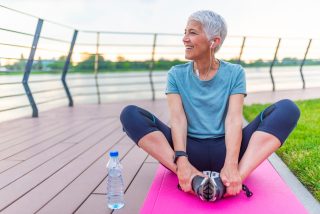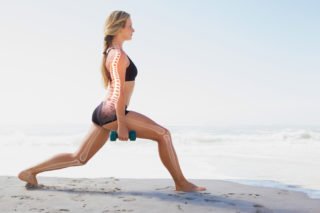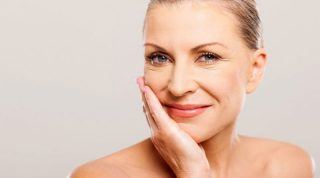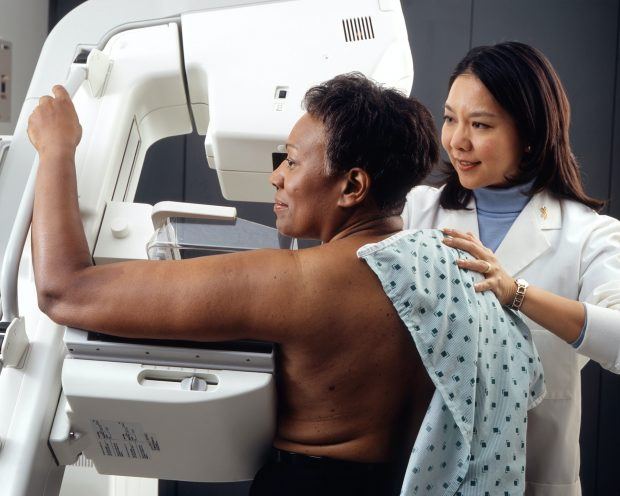In this women’s guide to healthy aging, we provide a detailed review of the major lifestyle risks facing women as they age and what to do.
A woman’s body goes through major changes throughout her life, leading to different health concerns at different ages. And during times of physiological change, women are susceptible to mental health issues such as depression, anxiety and eating disorders. Major disease risks include cardiovascular disease, cancer and osteoporosis. Fortunately, most of the diseases that affect women are treatable if detected early, and women can live long and happy lives by following simple health advice.
A Women’s Guide To Aging
The reproductive cycle governs many stages of a woman’s life, with oestrogen levels directing many of the physical changes women experience during adolescence, adulthood and old age.
At the moment of conception, girls immediately begin displaying physiological differences from boys, expressing genes in the placenta differently. As young as the age of six, girls may begin developing concerns about their weight. From around the age of eight, the ovaries begin to produce oestrogen, causing the breasts and areolas to enlarge and buds to appear around the nipple. Girls also begin to grow pubic hair and hair under their arms.

Dragana Gordic/Shutterstock
In adulthood, sexual-health issues such as fertility, avoiding STDs and practising safe birth control gain importance will all impact women’s health.
In most women, menopause begins in the late 40s and early 50s, officially beginning when a woman goes a full year without menstruating. During this time, oestrogen and progesterone levels fluctuate. As oestrogen levels decrease, many tissues in the body, including the breasts, lose hydration and elasticity. Likewise, NAD research reported that aging causes a gradual decline in tissue and cellular NAD+ levels. It leads to aging-associated diseases. Thus, taking care of your health becomes essential.
Disease risk and longevity
Around this time, children often leave home, elderly parents begin needing care, and marriages are often affected by a partner’s medical issues or changing life goals. All of these factors lead to a high rate of depression and physical fatigue in many women.
As life expectancy has increased, so has the number of post-menopausal conditions and diseases. Many women are affected by urinary incontinence, chronic migraines and breast cancer. Osteoporosis, hypercholesterolaemia (high cholesterol) and atherosclerosis (plaque build-up in arteries) are also common.
Common Diseases and Conditions
Cancer
Cancer kills more than a quarter of a million women every year, according to the World Health Organization. Common cancers in women include skin cancer, breast cancer, lung cancer and colorectal cancer.
Breast cancer affects about 12% of women, but the survival rate is high if it’s detected early. It’s reported to be the second-highest cause of cancerous death among women, accounting for about 40 000 deaths per year685 000 deaths in women worldwide in 2020 (WHO statistics).

Photo by National Cancer Institute on Unsplash
Dr Justus Apffelstaedt, specialist and breast cancer surgeon, explains:
“There are many factors that can cause breast cancer. Breast cancer has been linked to increasing urbanisation, changes in diet (more processed foods, saturated fats, etc), less physical activity, ballooning obesity, increased alcohol consumption, greater stress (which can affect hormone levels and suppress the immune system), having children later, and a move away from breastfeeding.
Pregnancy and breastfeeding lower your chances of developing cancer by reducing your lifetime number of menstrual cycles, exposing you to less oestrogen, which can stimulate breast cancer cells to grow. Unfortunately, we cannot prevent certain aspects of who we are as human beings, including factors such as ageing, menopause and family genetic history.”
He suggests that, from the age of 40 onwards, mammography is important, but breast self-checks should start in your 20s.
“It’s recommended to do a monthly breast self-examination at around the same time every month. If you don’t have a predisposition to breast cancer in your family, it’s recommended to have a clinical breast examination by a healthcare professional every three years from the age of 40.”
Osteoporosis and aging
Osteoporosis is a disease that causes bones to weaken, with the hip, spine and wrist most susceptible to fractures or breaks. Those at high risk for osteoporosis include:

ESB Professional/Shutterstock
- The elderly
- Smaller, thinner women
- Asian and white women
- Those with a family history of osteoporosis
- Individuals with anorexia nervosa
- Those with low calcium and vitamin D diets
- Individuals who consume excess alcohol
- Those who smoke
Apart from eating a well-balanced diet that includes fruits and vegetables, and avoiding smoking and excessive drinking, engaging in regular exercise is essential for preventing osteoporosis.
Depression and women’s aging
Depression can occur at any age, but it’s more common in women than in men. It affects a woman’s ability to work, sleep, eat and feel happiness, leading more women to attempt suicide every year than men.
Factors contributing to depression include genes, hormones and stress. When women’s hormones change, their brain chemistry changes too. Many women experience depression during puberty, after having a baby, and during or after menopause. As a way to alleviate the symptoms, it may be essential to restore your perfect hormone balance.
Health and wellness expert Vanessa Ascencao says that, in most cases, therapy can treat depression, and in some cases, medications may help. However, many antidepressants have side effects, and the benefits should be weighed against the risks.

Photo by Ben Blennerhassett on Unsplash
“Worry and fear have been on the increase globally, and depression rates in South Africa doubled over the last three years.
Enduring stress was not only detrimental to mental health but contributed to the risk of heart attacks and strokes.
In addition to regular exercise, diet is the fuel that affects the structure and function of the brain and mood, so make sure you boost your nutrient intake.”
What to do
Strive to eat nourishing foods and take quality supplements. Maintain connections with friends and loved ones, take regular breaks, live mindfully, get enough restorative sleep at night, manage stress and ask for help. Implementing these will go a long way to maintaining better mental health.”
Photo by Anna Pelzer on Unsplash
Women’s Skin and Hair Issues
If you’re experiencing hair loss, it’s best to make an appointment with a dermatologist to determine the cause and receive treatment. Female pattern hair loss is generally hereditary, but it’s more common after menopause, so hormones may also play a role.
Another condition that can be heavily influenced by hormones is acne. Although common in both sexes, certain subsets of acne can be exacerbated by female hormones. Female pattern acne may be treated with different medications from male acne.
Ascencao says diet and supplements support skin health. She advocates a natural, anti-inflammatory, organic, whole food diet including blueberries, nuts and seeds, carrots and leafy greens, green tea extract and cauliflower, which help to protect against wrinkling and sun damage while fighting free radicals. 
“Taking good-quality, food-derived supplements, such as green tea extract, Origine 8 and Purest Omega 3, may help reduce inflammation, fight against disease, strengthen the immune system and promote healing. A body that is healthy on the inside can repair the damage a lot quicker,” she says.
Women’s Sexual and Reproductive Health
A visit to the gynaecologist is recommended for annual screening (check-ups around the age of 21), and any time a woman has concerns about symptoms such as pelvic, vulvar and vaginal pain, or abnormal bleeding from the uterus. Conditions commonly treated by gynaecologists include issues relating to pregnancy, fertility, menstruation and menopause.
According to Dr Sulaiman Heylen, a specialist in reproductive surgery, patients are often referred too late, and the delay in referral can affect outcomes. He adds that age is also an important consideration, because fertility decreases significantly after the age of 35, and after the age of 42/43, some women can struggle to fall pregnant.
Recommended Screenings For Women

Photo by National Cancer Institute on Unsplash
Many conditions and diseases that affect women’s health can be treated or prevented through regular screenings.
Here are the most important screenings:
- Mammogram: ask your doctor at age 40-49
- Mammogram: age 50-74, every two years
- Pap smear: age 21-65, every three years
- HPV test: age 30-65, every five years
- Colorectal cancer: age 50-75, regular screening
- HIV: younger than 65
- Diabetes: all women with high blood pressure
- Lung cancer: begin screening if there is a history of smoking tobacco
- Osteoporosis: begin screening at 65
- STDs: screen if you’re planning to get pregnant
- Depression: talk to a doctor or therapist if you feel sad, hopeless or experience little pleasure doing things, for more than two weeks
10 Habits For Women’s Healthy Aging
- Be physically active: Try to do 30 minutes of moderate physical activity most days of the week (walking, gardening, dancing).
- Follow a healthy diet: Eat a diet rich in vegetables, fruit, lean meats, whole grains and low-fat dairy products, and avoid foods high in cholesterol, trans fats, saturated fats, salt (sodium) and added sugars.
- Stay hydrated: Drinking plenty of fluids and emptying the bladder helps to prevent UTIs and boost women’s health in general.
- Maintain a healthy weight: Balance calories consumed with calories burned.
- Drink alcohol in moderation: Most women should not have more than one drink per day.
- Don’t smoke.
- Ask your doctor about aspirin: Taking aspirin may help to prevent a stroke for some women between the ages of 55 and 70.
- Ask your doctor about folic acid supplements if you plan to get pregnant.
- Ask your doctor about calcium and vitamin D supplements to help to prevent osteoporosis.
- Ensure you do your regular tests and check ups. Pap smears, bone density and breast cancer scans and daily self-checks as referred to above.
References:






![women [longevity live]](https://longevitylive.com/wp-content/uploads/2020/01/photo-of-women-walking-down-the-street-1116984-100x100.jpg)










